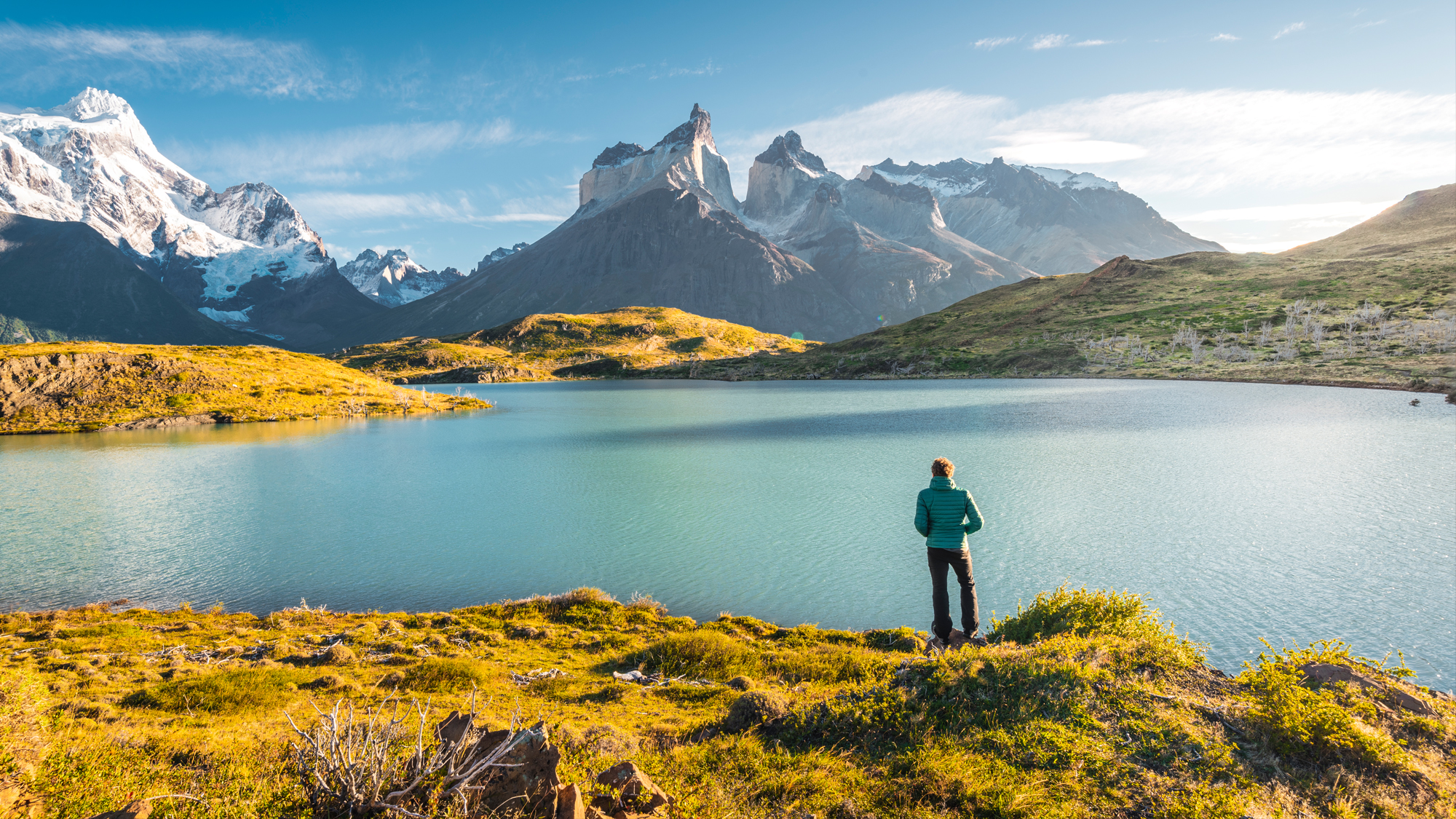No escape from evil
Why it's not possible to flee politics and the news


A free daily email with the biggest news stories of the day – and the best features from TheWeek.com
You are now subscribed
Your newsletter sign-up was successful
From a jagged hilltop in Torres del Paine National Park in Chile, a group of hikers was marveling at the white tongue of a glacier descending through a valley to a vast blue lake. I asked our guide, a young Chilean woman from the capital city of Santiago, what it was like to live in this paradise near the tip of South America, and whether she kept up with news from the outside world. "No, I stopped paying attention," she said with a laugh. "I don't even go back to Santiago much anymore." I said I couldn't blame her. While recently vacationing in a yurt in Patagonia, my wife, Karla, and I couldn't help but think about how nice it would be to escape the anger, violence, and madness of the "civilized" world. That fantasy, it seems, is widely shared. Exhausted and heartsick, many people are tuning out the grim news about politics, Gaza, Ukraine, and climate change, and musing with friends about where to flee.
Here's the problem with tuning out or running away, as tempting as flight might be. Demagogues, dictators, and sociopaths are relentless in their pursuit of self-serving ends, and succeed when they wear down the resistance of principled people. When evil men triumph, escape is only temporary. While we were in Patagonia, we heard two sharp cracking sounds from the glaciers — warning signs of the ancient ice's dramatic retreat amid warming temperatures. Do nothing but admire the scenery, and one day the glaciers — and so much else — will be gone. The same is true for democracy and decency. We can succumb to doomerism and let the bastards win, or stand and fight for what matters, and for the world we leave our children and grandchildren. In the gloomiest depths of World War II, as Hitler's war machine rolled over Europe, Winston Churchill had this inspiring rejoinder to despair: "Whatever the cost may be, we shall fight. We shall never surrender." P.S.: The Nazis lost.
This is the editor's letter in the current issue of The Week magazine.
The Week
Escape your echo chamber. Get the facts behind the news, plus analysis from multiple perspectives.

Sign up for The Week's Free Newsletters
From our morning news briefing to a weekly Good News Newsletter, get the best of The Week delivered directly to your inbox.
From our morning news briefing to a weekly Good News Newsletter, get the best of The Week delivered directly to your inbox.
A free daily email with the biggest news stories of the day – and the best features from TheWeek.com
William Falk is editor-in-chief of The Week, and has held that role since the magazine's first issue in 2001. He has previously been a reporter, columnist, and editor at the Gannett Westchester Newspapers and at Newsday, where he was part of two reporting teams that won Pulitzer Prizes.
-
 What to know before filing your own taxes for the first time
What to know before filing your own taxes for the first timethe explainer Tackle this financial milestone with confidence
-
 The biggest box office flops of the 21st century
The biggest box office flops of the 21st centuryin depth Unnecessary remakes and turgid, expensive CGI-fests highlight this list of these most notorious box-office losers
-
 The 10 most infamous abductions in modern history
The 10 most infamous abductions in modern historyin depth The taking of Savannah Guthrie’s mother, Nancy, is the latest in a long string of high-profile kidnappings
-
 Trump’s EPA kills legal basis for federal climate policy
Trump’s EPA kills legal basis for federal climate policySpeed Read The government’s authority to regulate several planet-warming pollutants has been repealed
-
 Democrats push for ICE accountability
Democrats push for ICE accountabilityFeature U.S. citizens shot and violently detained by immigration agents testify at Capitol Hill hearing
-
 Fulton County: A dress rehearsal for election theft?
Fulton County: A dress rehearsal for election theft?Feature Director of National Intelligence Tulsi Gabbard is Trump's de facto ‘voter fraud’ czar
-
 ‘Melania’: A film about nothing
‘Melania’: A film about nothingFeature Not telling all
-
 Is the Gaza peace plan destined to fail?
Is the Gaza peace plan destined to fail?Today’s Big Question Since the ceasefire agreement in October, the situation in Gaza is still ‘precarious’, with the path to peace facing ‘many obstacles’
-
 Greenland: The lasting damage of Trump’s tantrum
Greenland: The lasting damage of Trump’s tantrumFeature His desire for Greenland has seemingly faded away
-
 Minneapolis: The power of a boy’s photo
Minneapolis: The power of a boy’s photoFeature An image of Liam Conejo Ramos being detained lit up social media
-
 The price of forgiveness
The price of forgivenessFeature Trump’s unprecedented use of pardons has turned clemency into a big business.
